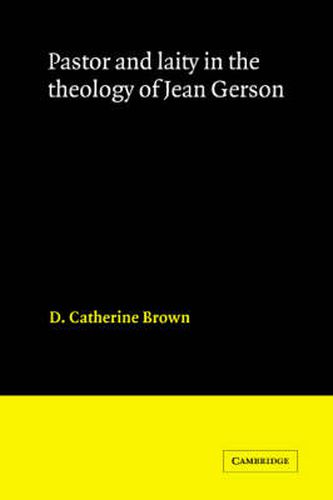Readings Newsletter
Become a Readings Member to make your shopping experience even easier.
Sign in or sign up for free!
You’re not far away from qualifying for FREE standard shipping within Australia
You’ve qualified for FREE standard shipping within Australia
The cart is loading…






Pastor and laity in the theology of Jean Gerson explores the pastoral teaching of one of Europe’s most influential churchmen of the early fifteenth century. Chancellor of the University of Paris from 1395 to 1429, Gerson is probably best known for his activities towards ending the Great Schism. But behind his public life lay a deep concern for the spiritual welfare of the people. Through an examination of Gerson’s sermons and writings for the laity, and of his many works giving guidance to bishops and parish priests about their roles as pastors, preachers and confessors, the book throws light on what the late medieval, pre-Reformation church was teaching the laity, and also on popular religious mentality in the period. The topics dealt with range from matters of high theological import such as justification, predestination and mysticism to the seven capital sins and all their branches, the art of preaching, women, marriage and children. Gerson’s teaching on these topics is put into a broad context and compared to that of some of his predecessors and contemporaries.
$9.00 standard shipping within Australia
FREE standard shipping within Australia for orders over $100.00
Express & International shipping calculated at checkout
Pastor and laity in the theology of Jean Gerson explores the pastoral teaching of one of Europe’s most influential churchmen of the early fifteenth century. Chancellor of the University of Paris from 1395 to 1429, Gerson is probably best known for his activities towards ending the Great Schism. But behind his public life lay a deep concern for the spiritual welfare of the people. Through an examination of Gerson’s sermons and writings for the laity, and of his many works giving guidance to bishops and parish priests about their roles as pastors, preachers and confessors, the book throws light on what the late medieval, pre-Reformation church was teaching the laity, and also on popular religious mentality in the period. The topics dealt with range from matters of high theological import such as justification, predestination and mysticism to the seven capital sins and all their branches, the art of preaching, women, marriage and children. Gerson’s teaching on these topics is put into a broad context and compared to that of some of his predecessors and contemporaries.